
HOW TO COPE WITH
CANCER-RELATED
FATIGUE?1
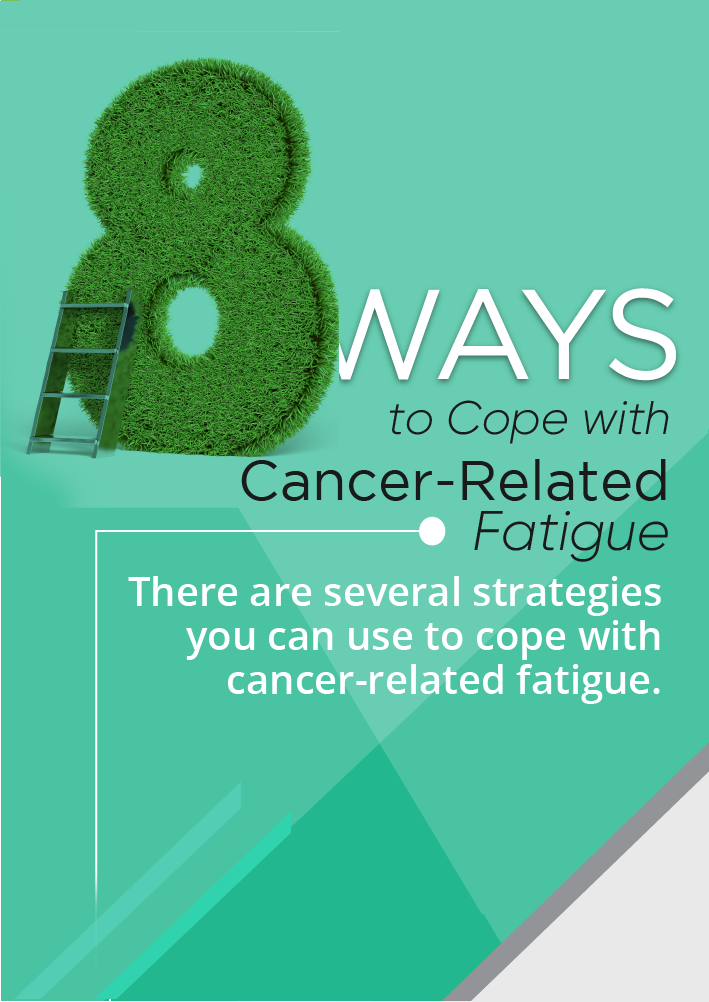
![]()
Get treated for medical conditions or causes that make fatigue worse (e.g., anemia, anxiety, poor nutrition, …etc).
![]()
Exercise safely
Move your body every day.
![]()
Take time to relax
Limit naps to less than 1 hour so that you can sleep at night.
![]()
Practice good sleep habits
Turn off the TV or computer at least an hour before bedtime.
Avoid caffeine in the afternoon or later.
![]()
Engage in mind-body strategies
Mindfulness-based approaches or activities, such as yoga or meditation help.
![]()
Consider therapy and counselling
A therapist experienced with working with people with cancer can provide you with coping strategies or other psychosocial interventions that may help with fatigue.
![]()
Eat well
![]()
Get a massage
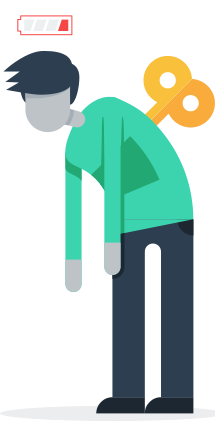
Tell Your Doctor If You Are Experiencing Fatigue.
You Should Be Screened for1


Pain or its treatment, especially narcotic pain medication

Emotional distress such as anxiety or depression
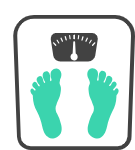
Poor nutrition or electrolyte imbalances such as abnormal levels of sodium, potassium, calcium, and magnesium

Anemia, an abnormally low level of red blood cells
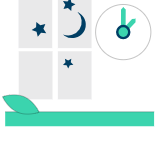
Sleep disturbances, such as sleep apnea or restless leg syndrome
Medication side effects

Other medical conditions, such as heart, lung, or hormone problems
Reference:
- Cancer.Net. 2017.8 Ways To Cope With Cancer-Related Fatigue. [online] Available at:
<https://www.cancer.net/blog/2017-01/8-ways-cope-with-cancer-related-fatigue> [Accessed 2 June 2020].
Copyright © 2024 Merck & Co., Inc., Rahway, NJ, USA and its affiliates.
All rights reserved. AE-KEY-00175
In case you need any update or you have an inquiry or need to report an adverse reaction, you can contact Tel: +9714 4269100 Fax: +9714 4269204 Email:
DPOC.GULF@MERCK.COM
LPGHG777-060421

